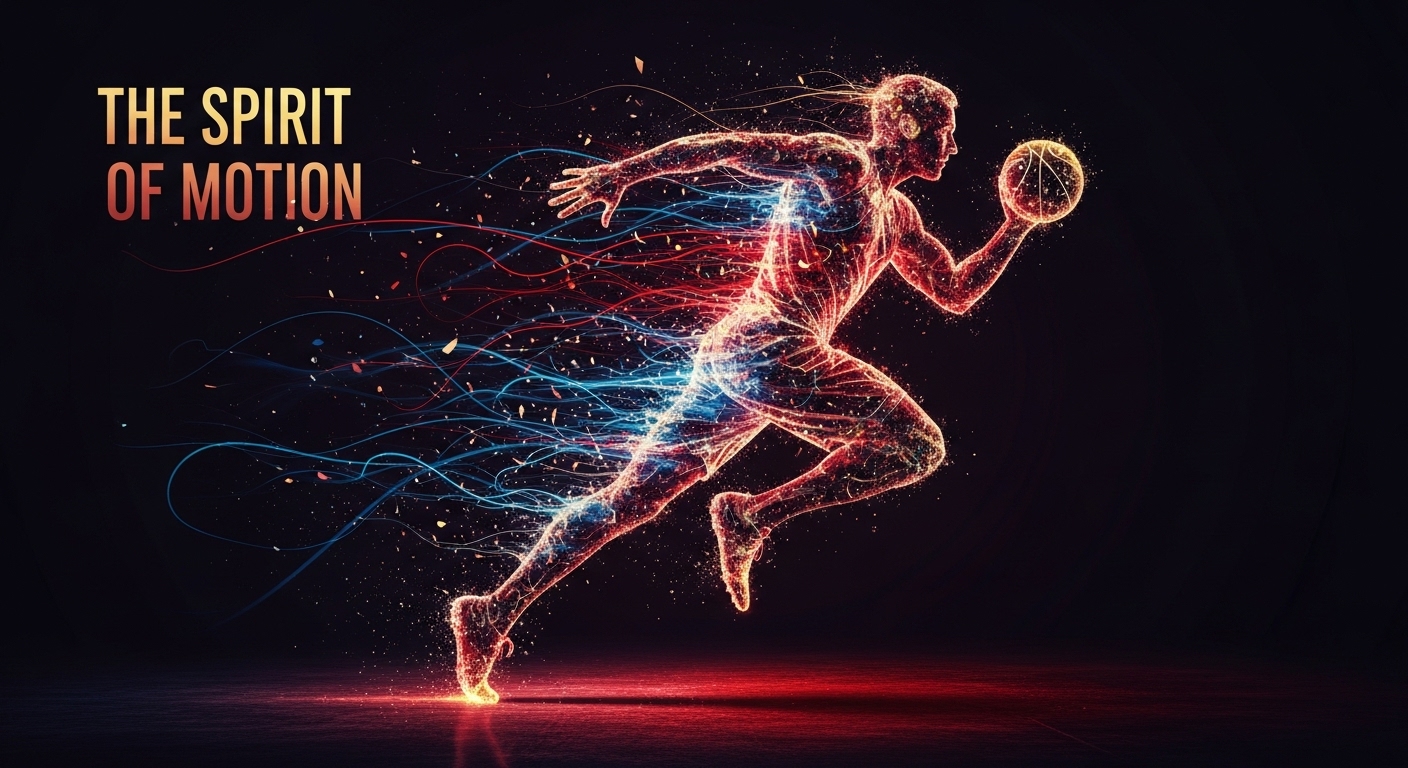Sports have always been more than just games. They are stories of determination, teamwork, and the human will to push beyond limits. Whether it’s the roar of a stadium during a football match, the calm focus of a tennis player before a serve, or the thundering footsteps of athletes in a marathon, sports embody emotion, energy, and excellence. Across centuries, they have evolved from simple physical contests into powerful global phenomena that shape societies, economies, and cultures. This blog explores the world of sports—their history, influence, psychology, challenges, and the way they unite humanity like nothing else can.
The Origins of Sports and Their Historical Significance
Sports have existed since ancient times. Long before modern stadiums and cameras, humans competed for honor, survival, and entertainment. In ancient Greece, the Olympic Games were born to celebrate the strength and skill of athletes and honor the gods. Wrestling, chariot racing, and discus throwing were considered prestigious, and athletes were seen as heroes. Similarly, in ancient China, activities like archery and martial arts were part of royal traditions, promoting discipline and strength.
In the Roman Empire, sports took a more dramatic form with gladiatorial combat. Though brutal, these games reflected the Roman admiration for courage and endurance. In the Americas, the Mayans played a ritual ball game called Pok-ta-Pok, where sports mixed with spirituality. Over centuries, every civilization developed its own way of expressing physical excellence through games. What began as rituals and leisure eventually turned into organized competitions and professional sports.
The Transformation of Sports in the Modern Era
The 19th and 20th centuries witnessed the true transformation of sports. The Industrial Revolution gave people more leisure time, and sports became a structured part of society. Rules were standardized, clubs were formed, and international competitions began to take shape. The revival of the modern Olympic Games in 1896 marked a turning point, celebrating unity through diversity.
The world soon saw the rise of organized leagues such as English football clubs, American baseball teams, and cricket associations. Media coverage, first through newspapers and later radio and television, turned athletes into global icons. By the mid-20th century, sports had become a profession, not just a pastime. The 21st century has pushed this evolution further, with digital technology, social media, and analytics redefining how sports are played, viewed, and managed.
The Emotional Power of Sports
Few things evoke emotion the way sports do. The passion of fans, the tears of victory, and the heartbreak of defeat all form part of the human experience. Sports allow individuals to connect with something larger than themselves. When a team wins, it feels like the entire nation wins. When an athlete falls, millions share that pain.
This emotional connection goes beyond competition. Sports teach us resilience, humility, and the importance of effort. The feeling of scoring a goal, completing a race, or even cheering from the stands gives people a sense of purpose and belonging. For many, sports are therapy—a way to escape, express, and heal.
The Role of Sports in Building Character
Sports are not only about physical ability but also about character. They teach lessons that go beyond the field. Discipline, teamwork, patience, and respect for rules are values ingrained in every athlete. These qualities often shape individuals into better people in everyday life.
A child learning to play cricket or basketball isn’t just developing hand-eye coordination; they are learning communication, leadership, and responsibility. Sports create environments where people from different backgrounds come together to work toward a common goal. Whether you win or lose, the experience builds resilience. That’s why schools and universities around the world emphasize sports as a vital part of education.
The Global Language of Sports
Sports transcend language, culture, and politics. A football match between countries can unite fans across continents. The Olympics bring together nations in peaceful competition, reminding the world that despite differences, we share a common humanity.
In times of crisis, sports have often acted as a unifying force. When Nelson Mandela used the 1995 Rugby World Cup to promote reconciliation in South Africa, it showed how powerful sports could be in healing divisions. Similarly, global events like the FIFA World Cup or the Cricket World Cup bring billions of people together in shared excitement. Sports speak to everyone, regardless of age, gender, or nationality.
Women in Sports: Breaking Barriers and Redefining Strength
For much of history, sports were dominated by men, but women have fought tirelessly to claim their space. Today, women’s sports are thriving, with incredible athletes inspiring future generations. From tennis champions to football icons, women have proven that strength, skill, and intelligence have no gender.
Trailblazers like Serena Williams, Mia Hamm, and Simone Biles have challenged stereotypes and inspired millions. Women’s leagues and tournaments are growing in popularity, and investment in female athletes continues to rise. The fight for equal pay and representation still continues, but the progress made in the last few decades marks a revolution in sports history.
The Science and Technology Behind Modern Sports
The evolution of sports is deeply tied to advancements in science and technology. From nutrition and biomechanics to analytics and artificial intelligence, science has transformed how athletes train and perform.
Wearable devices track heart rate, sleep, and movement. High-speed cameras analyze motion, helping athletes refine their techniques. Sports medicine helps prevent injuries and speeds recovery. Data analytics allows teams to strategize with precision, while technology enhances fan experiences with instant replays and virtual reality. The integration of science into sports has made it not only more competitive but also safer and more engaging.
The Economic Impact of Sports
Sports are not just about passion—they’re also big business. Major sporting events generate billions in revenue, create jobs, and boost tourism. Cities compete to host global tournaments because of their economic benefits. The sale of merchandise, sponsorships, broadcasting rights, and advertising have turned sports into one of the most profitable industries worldwide.
Clubs like Real Madrid, Manchester United, and the Los Angeles Lakers are not just teams—they are global brands. Athletes themselves have become entrepreneurs, endorsing products and launching businesses. The sports industry’s growth also fuels infrastructure development, media innovation, and technological progress. In many countries, sports contribute significantly to GDP and national pride.
The Role of Media and Social Influence
Media has played an enormous role in shaping modern sports. From live broadcasts to viral clips, it amplifies every moment. Fans can now follow their favorite players’ journeys through social platforms, making athletes more accessible and relatable.
However, this exposure also brings pressure. The public scrutiny athletes face today is immense. One mistake can turn into global controversy. Yet, social media also gives athletes a voice to inspire and advocate for causes they believe in. Campaigns promoting mental health, equality, and environmental awareness have gained strength through sports figures who use their platforms for good.
Sports and Mental Health
Behind every success story in sports lies an untold battle with pressure, anxiety, and expectation. The mental health of athletes has become a critical topic in recent years. The demand to perform at peak levels, the fear of failure, and constant media attention can take a heavy toll.
Athletes like Naomi Osaka and Michael Phelps have spoken openly about their struggles, helping to break the stigma surrounding mental health. Sports psychologists now work with teams to build mental resilience and emotional balance. The message is clear—strength is not only physical but also psychological. Recognizing the importance of mental well-being ensures that sports remain truly human.
The Spirit of Fair Play and Ethics
At the heart of all sports lies the principle of fair play. It’s not just about winning but about respecting the rules and opponents. Unfortunately, issues like doping, match-fixing, and corruption have at times tainted sports. These challenges remind us that the integrity of the game is what keeps it meaningful.
Organizations worldwide are working to ensure transparency and fairness. Anti-doping agencies, stricter regulations, and education programs aim to protect the purity of competition. When athletes compete with honesty and respect, they uphold the true spirit of sportsmanship.
The Future of Sports: Innovation and Inclusion
The future of sports looks exciting and transformative. Virtual reality, esports, and wearable technologies are reshaping the definition of athletic competition. Esports, for example, have already become a global industry, with tournaments watched by millions online.
At the same time, inclusion and accessibility are taking center stage. Paralympic athletes are breaking boundaries, proving that ability is defined by determination, not limitation. Initiatives to include marginalized communities in sports are growing, ensuring that everyone has a chance to participate and shine.
Youth and Grassroots Sports Development
The future of any nation’s sports success lies in its youth. Grassroots programs nurture young talent and promote physical fitness. Beyond producing professional athletes, they help children learn discipline, teamwork, and leadership.
In many countries, schools and community organizations are investing in youth training facilities. Early exposure to sports encourages healthy lifestyles and keeps children away from negative influences. Supporting grassroots sports also strengthens national pride and ensures that the next generation continues the legacy of athletic excellence.
The Cultural Impact of Sports
Sports influence culture in profound ways. They inspire art, music, literature, and even fashion. Stadiums become symbols of national pride, and athletes become cultural ambassadors. The colors, chants, and traditions associated with teams and events reflect identity and belonging.
Cultural expressions through sports also help break stereotypes and promote unity. A cricket match in South Asia, a football derby in Europe, or a basketball game in America all represent more than just competition—they reflect history, values, and dreams. Sports have the unique power to mirror the spirit of a people.
The Legacy of Great Athletes
Every era has its legends—athletes whose impact transcends generations. From Muhammad Ali’s courage to Pelé’s grace, from Usain Bolt’s lightning speed to Roger Federer’s elegance, these icons represent the pinnacle of human potential.
Their journeys inspire millions to believe in themselves. Great athletes teach us that success comes through perseverance and self-belief. Their legacy is not only measured by trophies but also by the lives they touch and the barriers they break.
Sports as a Symbol of Hope and Humanity
In a world often divided by politics, race, or religion, sports remain a rare symbol of unity. When fans cheer for their teams, all differences fade. The field becomes a place of equality, where effort and talent are the only measures that matter.
After natural disasters or conflicts, sports have helped rebuild hope. They bring smiles where there is sorrow and foster peace where there is division. The Olympic flame itself symbolizes this universal spirit—a light that never fades, reminding humanity of what we can achieve together.
Conclusion: The Timeless Power of Sports
Sports are not just physical contests; they are reflections of life itself. They teach us to rise after every fall, to respect others, and to strive for greatness. Whether played on dusty fields or under bright stadium lights, sports embody passion, perseverance, and purpose.
As the world continues to evolve, sports will remain a constant reminder of our shared humanity. They inspire individuals, shape societies, and connect hearts across borders. From ancient arenas to virtual arenas, the spirit of sports continues to unite us, reminding every generation that victory is not just about winning—it’s about playing with honor, courage, and joy.



